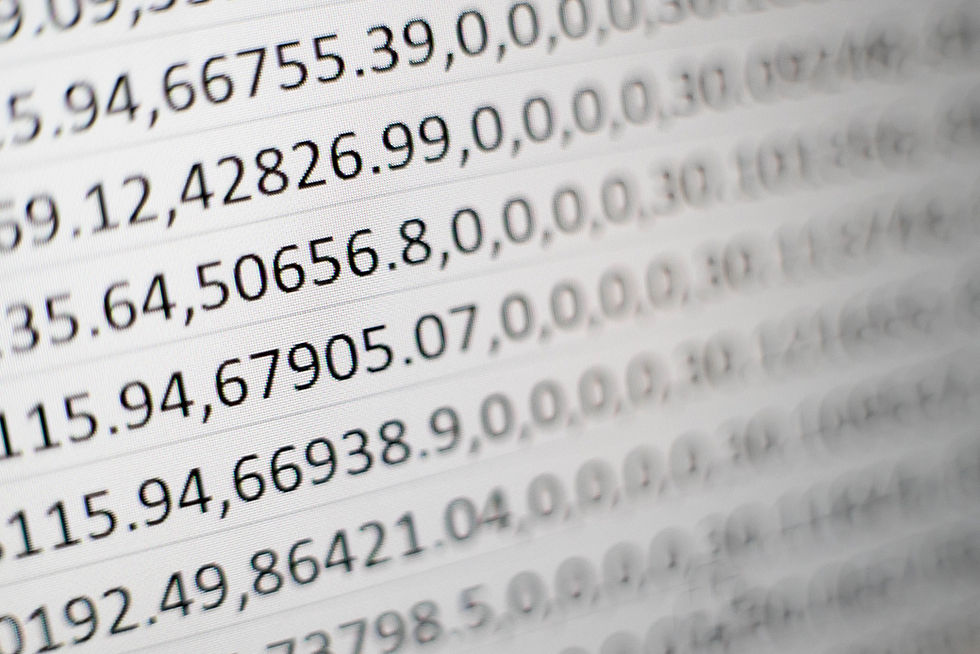The Power and History of Numerology
- thebluebodhi
- Jan 8
- 3 min read
Numerology, the mystical study of numbers and their symbolic meanings, has been a part of various cultures throughout history, believed to unlock the secrets of the universe and human existence. This ancient practice extends beyond mere mathematics; it intertwines spirituality, philosophy, and psychology, offering insights into one's character, relationships, and life path.

What is Numerology?
Numerology posits that numbers are not just mathematical symbols but carry vibrational frequencies and energies that can influence our lives. Each number holds unique characteristics and meanings, believed to reflect aspects of personality, destiny, and experiences. Numerologists analyze these numbers—gathered from names, birth dates, or significant events—to provide guidance and understanding.
Key Concepts in Numerology
1. Core Numbers:
Life Path Number: Derived from the birth date, this number illuminates one’s life purpose, personality traits, and opportunities for growth. To calculate it, add the digits of your birth date until you reach a single digit (1-9) or a master number (11, 22, 33).
Destiny Number: Based on the full name at birth, this number reveals talents, skills, and the person one is destined to become. It is calculated by converting letters in the name to numbers (A=1, B=2, etc.) and reducing them to a single digit.
Soul Urge Number: This number uncovers desires and motivations, derived from the vowels in the name. It highlights the innermost wishes of the soul.
2. Master Numbers:
Master numbers (11, 22, 33) are believed to have heightened spiritual significance and potential, offering unique challenges and opportunities for those carrying them.
3. Personal Year Number:
This number changes annually, representing themes and energies influencing an individual during a particular year in their life.
Historical Origins of Numerology
Ancient Civilizations:
The roots of numerology can be traced back thousands of years to various ancient civilizations:
Babylonians: Some of the earliest records of numerological concepts come from Babylon, where scholars studied celestial movements and correlated them with numerical significance.
Pythagoreans: In ancient Greece, Pythagoras (c. 570-495 BCE) is often credited with laying the foundations of numerology. He believed numbers were the building blocks of the universe and sought to uncover their underlying principles. His teachings emphasized the connections between mathematics, music, and nature.
Hebrew Numerology (Gematria): Jewish mysticism includes Gematria, a system where each Hebrew letter corresponds to a numerical value, allowing sacred texts to be analyzed for deeper meaning beyond the literal.
Chinese Numerology: In Chinese culture, numbers play a significant role in beliefs and practices. For example, the number eight is associated with wealth and prosperity due to its phonetic similarity to the word for wealth in Mandarin.
Numerology in Modern Times
Spiritual Awakening:
In the 20th century, numerology experienced a resurgence as part of the New Age movement, attracting those seeking personal insight, healing, and spiritual growth. Practitioners today utilize numerology alongside other metaphysical practices, like astrology and tarot, to enhance self-awareness and understanding.
Psychological Insights:
Modern psychologists recognize the power of numerology as a tool for self-reflection. By examining numerical patterns, individuals can gain insights into their behaviors, motivations, and relationship dynamics.
Popular Culture:
Numerology continues to resonate in popular culture, featuring prominently in literature, movies, and self-help seminars. Many people consult numerology for guidance in decision-making, career choices, and relationship compatibility.
Numerology is a powerful tool that transcends mere calculation; it serves as a key to understanding oneself and the universe. By exploring the historical roots and significance of numbers, individuals can unlock deep insights into their lives and the world around them. Whether approached as a spiritual practice or a means of self-exploration, numerology remains a fascinating and enriching discipline in the quest for knowledge and personal growth.

Comments